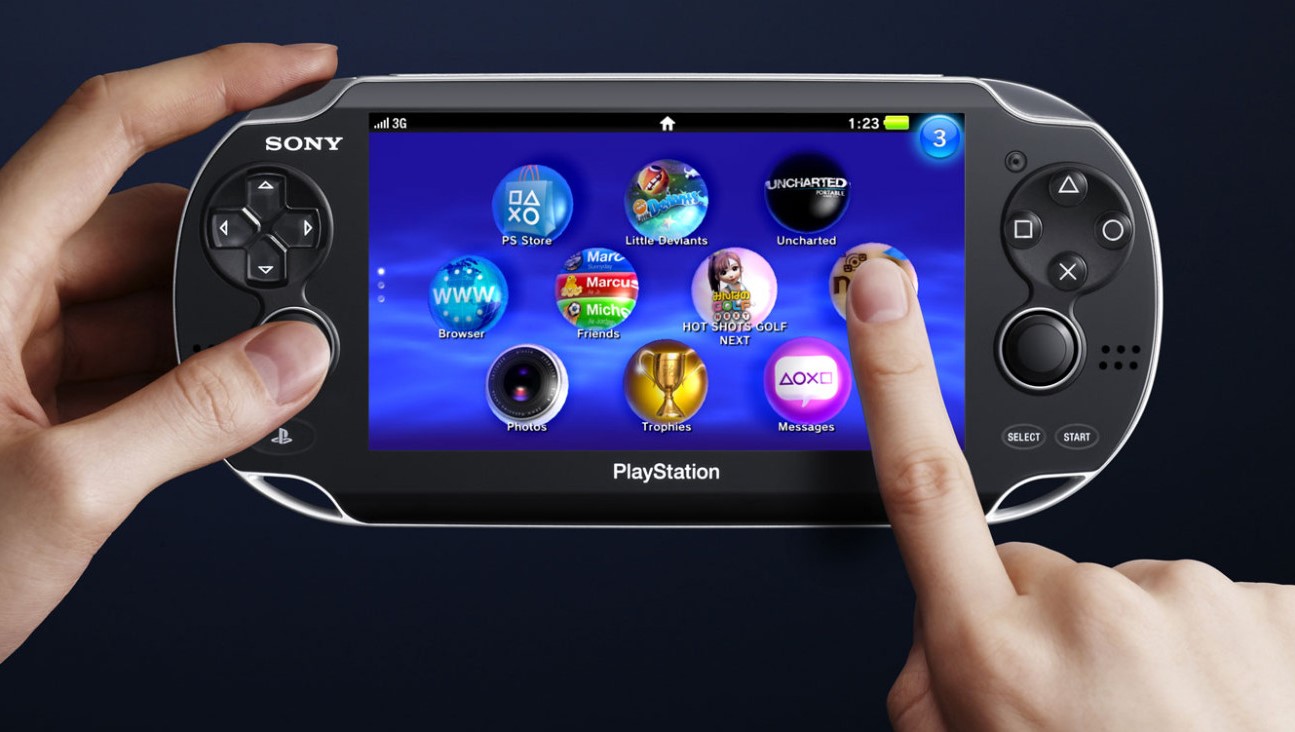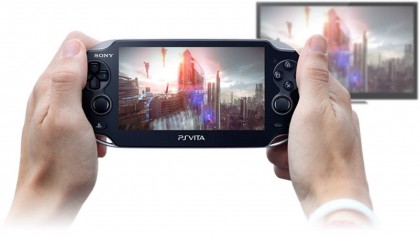Your PS Vita may be gathering dust, but it's no console failure
Handhelds don't hold sway in the West the way they did with the Game Boy

Sign up for breaking news, reviews, opinion, top tech deals, and more.
You are now subscribed
Your newsletter sign-up was successful
Oh PS Vita, what did you do deserve this? Once a powerful, robust bit of handheld kit, you could have co-ruled the world as a herald and trusty companion to PlayStation 4.
Sony even began marketing it that way in 2014, but it was too little, too late by that stage. And while the PS4 has gone on to achieve incredible sales feats worldwide, the poor Vita stagnates. It seems, for all intents and purposes, that the PS Vita is as good as dead and ready for its dotage in the Kutaragi Home for Retired Consoles.
But is that really the case? Did Sony really invest all that money into a console for nothing?
The answer on both counts is an emphatic no. Much like PSP before it, sales of PS Vita were strong enough to help Sony bridge the gap between the expensive mess that was PS3 and the critical darling the PS4 has become.
The fact those sales didn't take place in the West almost doesn't matter, but we'll get to that later.
Form factors
What breaks the heart the most is the sheer technological miracles Sony pulled off beneath the Vita's handheld hood. Its ARM CPU and Power VR SGX543 GPU cores give it all the grunt it needs to conjure an almost spot-on approximation of the PlayStation 3's graphical performance - and all that on a mere six per cent of the juice Sony's seventh generation console used.
Not to mention the power it takes to stream and calibrate PS4 content via the Remote Play feature. It's a proper little pint-sized powerhouse.
Sign up for breaking news, reviews, opinion, top tech deals, and more.

Think about what PS Vita can do.
With the proportionate power of PS3, it can play games as grand and as beautiful as Tearaway, Gravity Rush and Killzone: Mercenary. It can stream (depending on the strength of your broadband) every single PS4 game direct to your handheld with minimal lag, providing a second screen experience Nintendo attempted to replicate with Nintendo Wii U.
Not only that it can play PSP, PS1 and PS Mini titles, making it one of the most comprehensive retro machines on the market.
As to why it still doesn't offer the same retroactive option for PS2 games remains a mystery, but that issue is somewhat negated by the fact that every PS2 emulator on PS4 will work with Remote Play. So that's another library of titles available on Vita.
Yes, many of those titles are available on PS3 and have been for years, but the handheld holds a different position in our consciousness. An innate intimacy that home consoles simply can't replicate.
In the zone
Just look at Killzone: Mercenary. Yes, it's a Killzone game, but it provided one of the most striking full console experiences in a far smaller form factor.
Full 3D controls thanks to the double analogue sticks, a smooth 30 frame per second (this is handheld after all), high definition graphical output, a full-on soundtrack and completely voice-acted story. It was gaming on a grander scale, it was… on PS Vita.
So it also came and went, registering as barely a blip on the radar of the gaming mainstream.

Even Uncharted - the franchise of the modern PlayStation era - couldn't boost PS Vita beyond the 'fad' connotation. That's a fully mo-capped, fully voiced, fully scored, full-fat cover shooter with Nathan Drake on the cover.
Nope. Nada. Dead in the water.
The fact it sat in PS Plus for well over a year for the grand total of zero pounds just adds to this overwhelming feeling that Sony realised the war was lost and simply threw all its best software against the wall for free in a thin hope it might do some good. It didn't.
It's a sad state of affairs, but one that's also exclusive to the West.
In Japan, PS Vita lives a very different life with a very different reputation. Ever since its launch in December 2011, it's remained high on the console sale rankings. In fact, in December last year (four years after it hit store shelves) it outsold PS4 by six thousand units.
SIX THOUSAND units more than the fastest-selling console in gaming history.
A different world
So what's kept PS Vita so high in the favour of Japanese gamers? Historically, handheld consoles have always sold well, from the original Game Boy to the New 3DS and PS Vita itself, and the rise of tablets and smartphones has done nothing to tarnish this record.
Some of Japan's biggest and most popular franchises - including Monster Hunter, Danganronpa, Persona and Steins;Gate - are either entirely handheld based or have significant entries on portable consoles.
Steins;Gate is a huge deal in Japan, with its time-travelling visual novel antics, but like many Japanese titles it's niche at best in the West.

When you look at the lifetime sales of software titles in the Japan, a staggering eight out of ten are handheld exclusives. Of course, it's important to note that most of the these titles are distinctly Japanese in presentation and gameplay.
This makes them niche prospects West - if they even make it over at all. Monster Strike 3DS sold 1 million units in two days in Japan - an incredible feat when you consider how big PS4 is in the East. And of the 13 million units sold worldwide in the PS Vita's lifetime (so far), a staggering 4 million of them originated on that tiny island.
Those sales are still in an upward curve, too.
Nintendo's 3DS remains the frontrunner - hell, it's outselling everything - but to the Japanese market the PS Vita and 3DS are very different machines, offering two very different experiences. There's very little divide between the two in terms of their audiences (unlike the ever pointless fanaticism we see between PlayStation and Xbox over here) and there's every chance PS Vita will continue to grow and bloom on Eastern shores.
The PS Vita then isn't a failure - it's a Western failure.
It's inability to seed in North America and Europe led Sony to announce its decision to stop making first-party titles for the handheld, but none of that will affect its future in Japan where most of its most successful titles are developed by third party studios.
Could we see a sequel to PS Vita then, its sales being so strong overseas? Well, considering Sony has described the climate as being, "not healthy," for its successor the prognosis suggests it's unlikely, but that comment was made specifically regarding the future of Sony handhelds in the West.
If Vita does ever breed, don't be surprised if it forms into a purely Japan-focused machine.